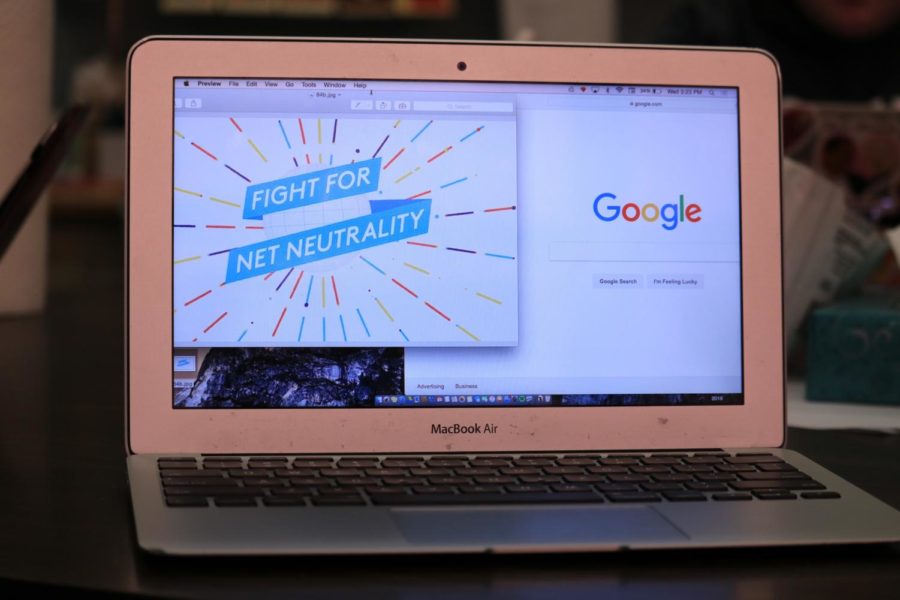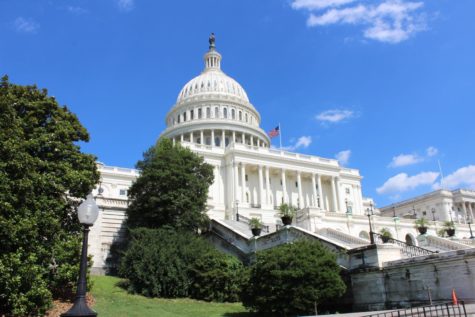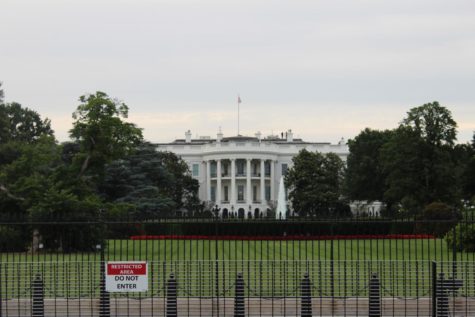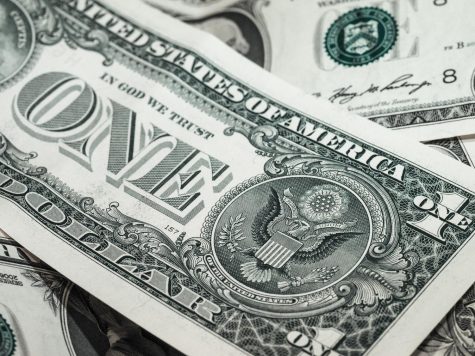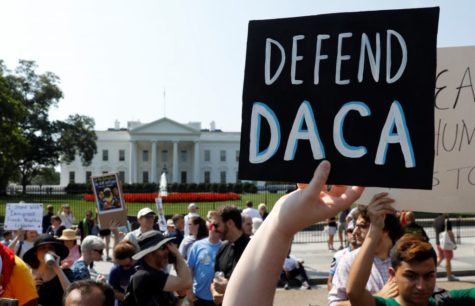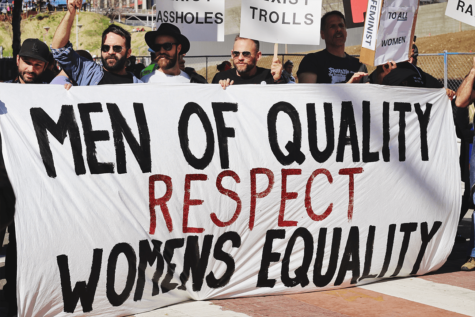Goodbye, Net Neutrality
Whether doing homework, taking online quizzes, or dress shopping for Spring Fling, Nerinx girls use the Internet for almost everything. And like most of the United States, Nerinx students are completely reliant on affordable Internet, and often take for granted the fast service to which they are accustomed. However, Nerinx students, and Internet users in general, could see a change in their service speed, and the price they are paying for it.
On December 14, 2017, the Federal Communications Committee, or FCC, led by Chairman Ajit Pai, voted –to repeal net neutrality, despite widespread public outcry. Net neutrality is the principle that Internet service providers, or ISPs, should provide equal access to all online content to all Internet users. Net neutrality ensures that ISPs such as Comcast or Verizon are not able to control the content its users’ access. These ISPs must treat all content equally.
However, with the repeal of net neutrality in December, this will soon change. Without net neutrality, ISPs will be able to block or slow down the streaming speed of any website they choose. An Internet service provider like Comcast would be able to slow down the streaming speed of a website like Netflix, in order to force Netflix into paying more money to get back its original streaming speed, so Comcast users could access the site as they had been able to before. Sound outrageous? This actually happened in 2014. Netflix decided to pay Comcast in order to regain its original streaming speed, so it could continue catering to Comcast users. It was the institution of net neutrality which kept instances like these few and far between – until December 2017.
Netflix was able to pay off Comcast because Netflix is a billion dollar company, with enough resources to respond to Comcast. However, there are countless content creators and small businesses which do not have the resources to counter ISPs’ choice to slow down certain streaming speeds. So if ISPs choose to slow down the streaming speeds of some content sources, and speed up the streaming speeds of others, those people and businesses without the resources to counter this will be helpless and will be forced to deal with the fact that users will simply not be able to access their content in a timely manner.
With the repeal of net neutrality, not only will ISPs be able to charge content creators and businesses more for fast streaming speeds, but ISPs will be able to charge its users more in order to access certain websites. ISPs will have the ability to upcharge the prices of websites such as YouTube or Netflix with little regulation whatsoever. For those who are unable to pay for such price hikes, these people are left in a difficult position, as they may be forced to choose between which websites they want to access.
In today’s world, the Internet is a vital tool which allows for people to make connections with each other and access a world of information. With the repeal of net neutrality, however, the information users are able to access and the price they pay for it will likely soon change.

